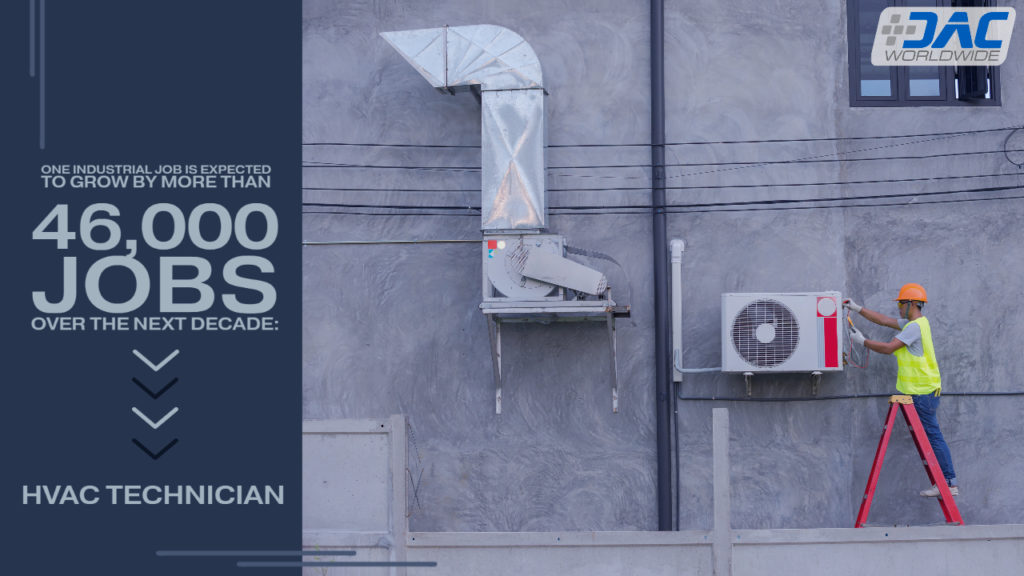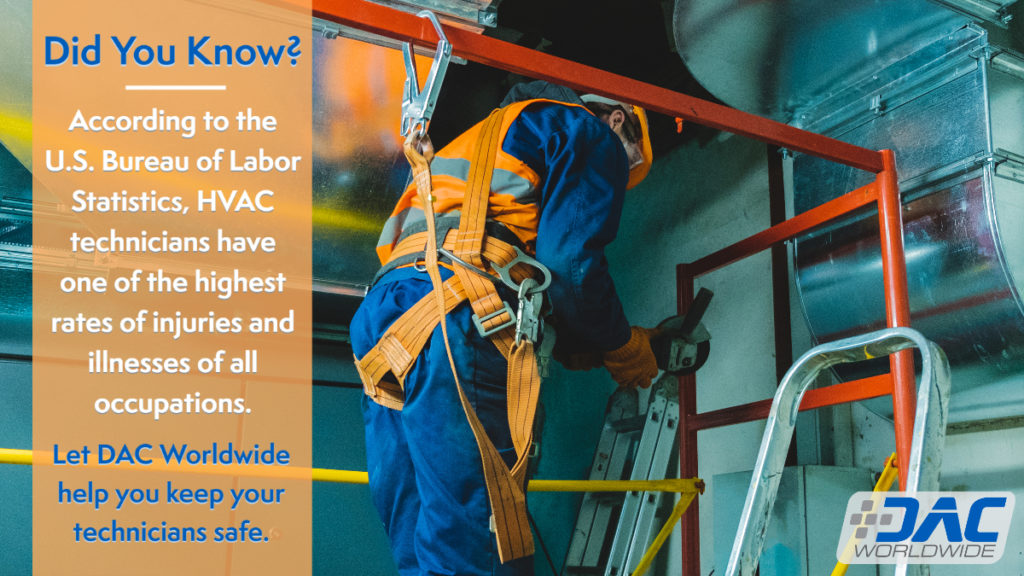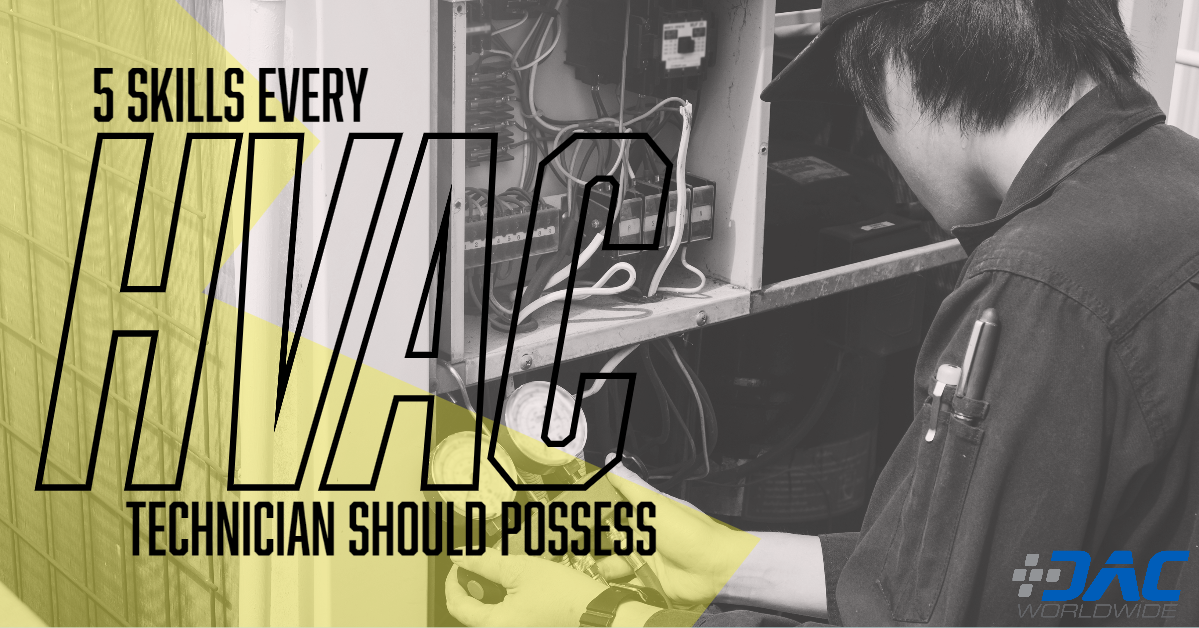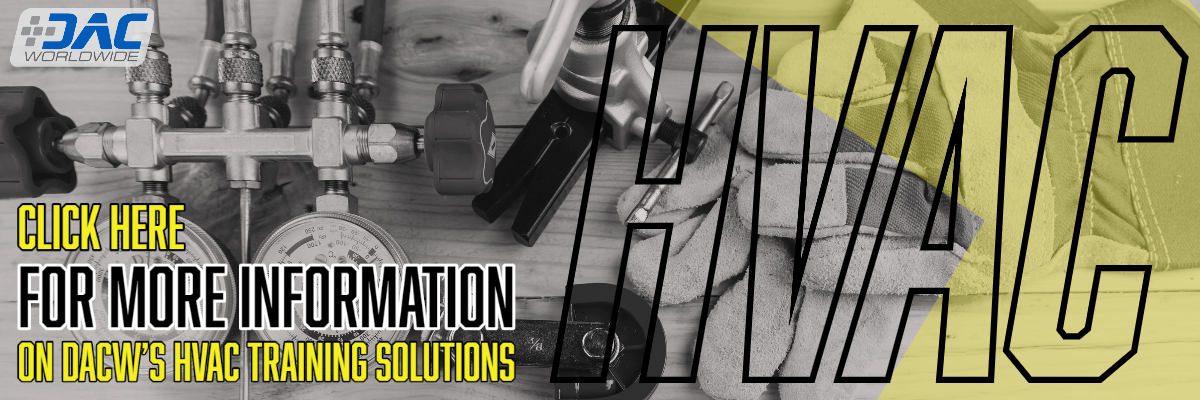To view ‘5 Skills Every HVAC Technician Should Possess’ as a Multimedia Presentation, please click here.
While the national unemployment rate might be near all-time lows (3.5-percent in Dec. 2019), one industrial job is expected to grow by more than 46,000 jobs over the next decade: HVAC technicians.
 Thanks to a push of commercial and residential building construction that is expected to drive employment growth and job opportunities, the employment outlook is expected to increase by 13-percent over the next 10 years. That is a sizable leap from the national average for all occupations, which sits at 5-percent over the next 10 years.
Thanks to a push of commercial and residential building construction that is expected to drive employment growth and job opportunities, the employment outlook is expected to increase by 13-percent over the next 10 years. That is a sizable leap from the national average for all occupations, which sits at 5-percent over the next 10 years.
Not only are there currently enough jobs to go around, but a spike in upcoming retirements has some employers desperate for qualified talent. That’s good news for those interested in joining the HVAC field, as it places them firmly in the driver’s seat of finding an ideal professional match.
So with jobs aplenty, what skills are employers most focused on when hiring HVAC technicians? DAC Worldwide, a company with 40 years of experience working with industry and technical education, has compiled a list of the five most meaningful HVAC technician skills companies are in search of:
1. In-Depth Knowledge of HVAC Systems and Methods
Doctors know medicine. Car mechanics know cars. To be successful in a profession, employees must understand the craft inside and out.
HVAC technicians are no different. They are responsible for knowing about a wide range of HVAC systems, controls, and installation methods, and quite literally, need to know about everything from hot to cold.
Whether technicians are threading and installing gas piping, or laying out duct systems, a deep understanding of all things HVAC is critical. Not only should technicians have the hands-on skills to perform each task, but they should back that up with a strong theoretical knowledge of their subject.
One way to enhance the understanding of HVAC systems is by taking a deep dive into how each piece of equipment works along the process. DAC Worldwide, for example, produces full-size industrial component cutouts that allow learners to take a peek inside real HVAC equipment for the first time. Now, students can see inside the equipment they might be fixing firsthand, providing an unparalleled training tool.
Today’s HVAC systems can be assembled, disassembled, repaired, and programmed, so having a background of mechanical skills is a key component to building a successful technician career. (After all, the more technical knowledge that a technician has from the start, the faster they can learn new skills, an attribute companies consider to be highly valuable.)
2. Acute Troubleshooting and Problem-Solving Skills
 The goal for every HVAC technician is the same – aim for safe, timely, and effective services every time. In order for that to happen, techs need to be quick-thinking workers, equipped with a collection of problem-solving techniques, and possess familiarity with the latest diagnostic and testing equipment.
The goal for every HVAC technician is the same – aim for safe, timely, and effective services every time. In order for that to happen, techs need to be quick-thinking workers, equipped with a collection of problem-solving techniques, and possess familiarity with the latest diagnostic and testing equipment.
In just one work day, technicians may face a wide variety of issues: one customer may have total system failure, while another is dealing with noise issues, or temperature balancing problems. Being able to quickly size-up the problem, identify solutions, and implement a resolution is the key to finding success as an HVAC technician.
Problem-solving is impossible without an acute attention to detail. So along with ingenuity, employers are also looking for workers that are detail-oriented. Not only should technicians be able to track the work they are completing, but they should also be aware of the intricacies of the equipment they are working on. Sometimes, not paying attention to the details could be costly – either to the equipment, or the technician’s safety. Effective troubleshooting is a combination of accepted troubleshooting procedures supported by a solid knowledge of how these systems work to perform their operations.
Thanks to using real-world components, DAC Worldwide’s HVAC cutaways take detailed training to another level. By providing a look inside authentic components found in HVAC systems worldwide, learners can truly understand the fine details of the equipment’s inner workings. To truly understand how a component can fail, technicians must first understand how it works.
3. Extensive Knowledge of Safety Standards and Protocols
A day in the life of an HVAC technician is not exactly a walk in the park.
According to the U.S. Bureau of Labor Statistics, technicians have one of the highest rates of injuries and illnesses of all occupations. While most of these can be prevented by following safety protocols, it does have the potential to be a dangerous career.
So despite working heights, in confined spaces, or attached to scaffolding, having comprehensive knowledge of proper preventative safety standards can keep workers healthy and business moving. From hazardous tasks like lifting heavy objects to installing electric wires and controls, understanding personal protective equipment (PPE) and other safety codes could be the difference between technicians suffering an injury, or not.
On top of personal safety, HVAC technicians need to be well-versed in government regulations. The U.S. Environmental Protection Agency (EPA), for example, requires that all technicians who work with refrigerants be certified in proper refrigeration handling. There are additional regulations on how to handle pressurized gases, refrigerants, and other toxic or hazardous materials, so knowing regulations surrounding proper and safe disposal will not only protect technicians from an accident or injury, but will also keep clients and the environment safe.
4. Soft Skills, Communication, and Flexibility
 Whether it’s a personal relationship or professional contact, we’ve all heard about the importance of first impressions: You only get one, so make it count.
Whether it’s a personal relationship or professional contact, we’ve all heard about the importance of first impressions: You only get one, so make it count.
Having a clean, professional appearance, listening to the customer, and showing all-around common courtesy are essential skills that can make or break a first meeting. Out in the field, employees are the face of the company, so making a good first impression is crucial for success of the business.
Possessing natural Customer Service skills are equally as important to this career as the technical skills a technician has. Not only is it a tech’s job to explain repairs and answer questions in a non-technical way, but they need to make the clients feel comfortable, building trust and rapport. This might require a little patience too, as their issues might have been ongoing, and frustration may be mounting. But in the end, having the ability to calmly and professionally talk through all of the issues and potential solutions will put everyone at ease.
Finally, in the world of an HVAC technician, every day is a new adventure. No matter the season, HVAC technicians are expected to work, even in uncomfortable situations.
Sometimes it’s too hot because the air conditioning isn’t working – other times the heat is out, making work conditions frigid. Even in the dead of winter, technicians might have to work outdoors, fixing heat exchanges, for example. Taking ‘flexible’ in a much more literal sense, some units are located in tight spaces, forcing technicians’ bodies to bend and curve in positions they didn’t know it could.
Being flexible is just part of the game. In this line of work, “That’s not my job” doesn’t exist. Sometimes, just being able to make changes on a whim, and occasionally just rolling with the punches, are the most effective tools a technician needs in his or her arsenal.
5. Willingness to Continue HVAC Learning and Training
If smart devices have taught us anything, it proves how quickly (and drastic) technology can change over decades. From minor tweaks to major overhauls, each update includes newer options and faster speeds.
The HVAC industry is no different. While it may not move with the veracity of cell phone technology, tools and equipment are being continuously adjusted to run more efficiently.
Today, there is also a continued push for greater energy efficiency, which includes phasing out hydrofluorocarbons (HFC) in favor of Global Warming Potential (GWP) refrigerants, and a rise of “zero emission building plans” and other green building standards. Soon, the HVAC industry will see an increase of variable speed technologies, which will improve electrical efficiency, air quality, and humidity control.
Without continued re-training within the field, technicians run the risk of encountering a component they can’t fix. So by having the willingness to continually hone their skills will not only be beneficial to their future professional success, but will also ensure timely, safe repairs and installations for all parties involved.








[…] can cause further damage and end up costing more in the long run. Professional technicians have the necessary skills and expertise to diagnose and fix the issue, ensuring that your system is running smoothly. Don’t hesitate […]